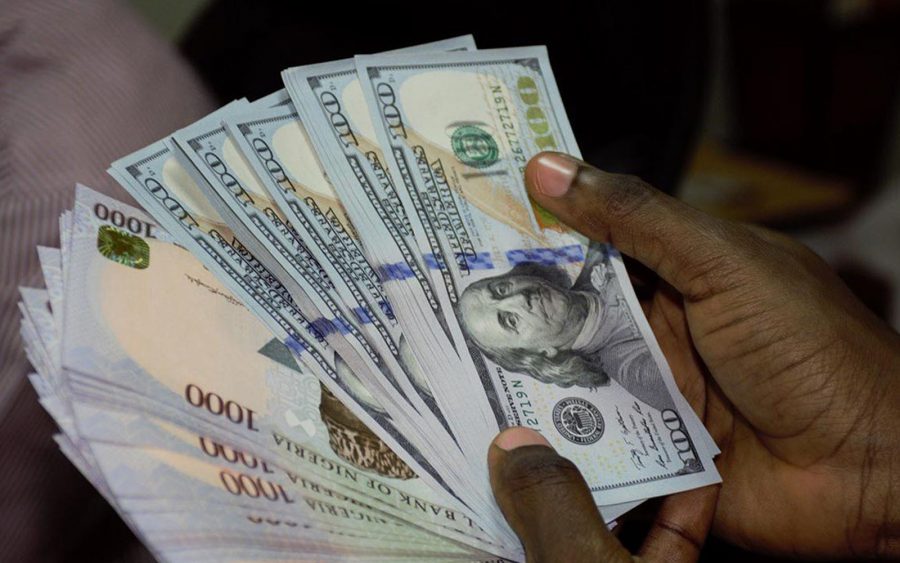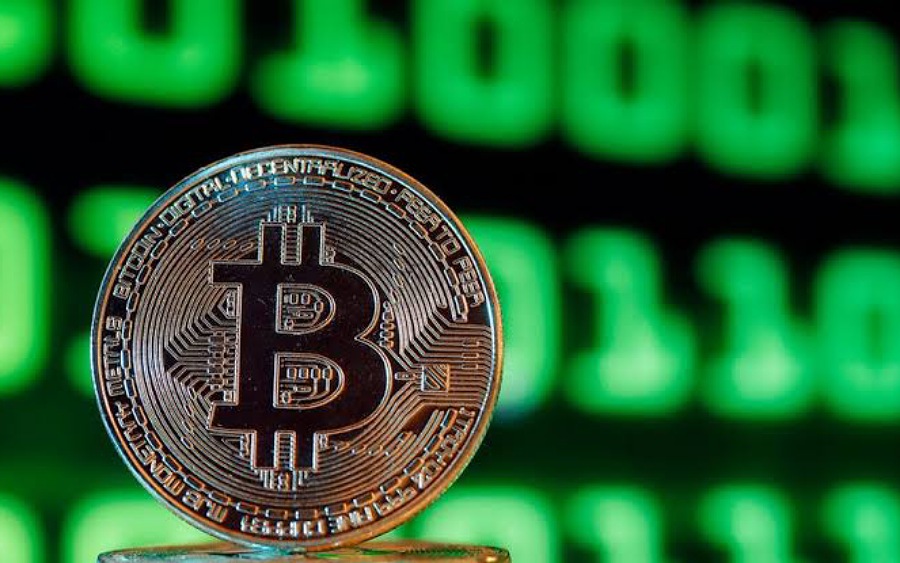Friday, 25th March 2021, the exchange rate between the naira and the US Dollar closed at N409.75/$1 at the Investors and Exporters window.
Naira depreciated against the US Dollar on Thursday, 25th March 2021 after witnessing two consecutive gains at the NAFEX window to close at N409.75 to a dollar.
This represents a 0.24% decline, when compared to N408.75/$1 recorded on Wednesday, 24th March 2021.
However, in the parallel market, the naira remained relatively stable, as it closed at N486/$1, which is the same as recorded in the previous trading session.
Forex turnover on the other hand jumped by 394.4% from $34.76 million recorded on the previous day to $171.85 million as oil price continues its bearish trend.
READ: Naira falls at NAFEX window despite 56.6% improvement in dollar supply
Trading at the official NAFEX window
Naira depreciated against the US Dollar at the Investors and Exporters window on Thursday to close at N409.75/$1. This represents a N1 decline when compared to N408.75/$1 recorded on Wednesday, 24th March 2021.
- The opening indicative rate closed at N409.21 to a dollar on Thursday. This represents an 80 kobo gain when compared to N409.78/$1 recorded on Tuesday.
- Also, an exchange rate of N411.4 to a dollar was the highest rate recorded during intra-day trading before it closed at N409.75/$1. It also sold for as low as N393/$1 during intra-day trading.
- Forex turnover at the Investor and Exporters (I&E) window increased significantly by 394.4% on Thursday, 25th March 2021.
- A cursory look at the data tracked by Nairametrics from FMDQ showed that forex turnover increased from $34.76 million recorded on Wednesday, March 24, 2021, to $171.85 million on Thursday.
READ: Naira 4 Dollar: Nigerians in diaspora remit $40 million in one week
Cryptocurrency watch
Bitcoin, the most priced and popular cryptocurrency in the world gained 2.03% in the early hours of Friday morning to trade at $52,355.45 after enduring a massive decline on Wednesday and Thursday trading.
- Ethereum also gained 2.11% to trade at $1,619.72 as of 4:38 am on Friday.
- The digital assets had witnessed bearish trading after the chairman of US Federal Reserve stated that bitcoin and other crypto assets are really not useful as a store of values.
- Meanwhile, a major South Korean Bank, BNK Busan has revealed plans to offer banking services for cryptocurrency exchanges.
- The bank is currently researching how other financial institutions already in the business of crypto deal with the exchanges amid forthcoming regulation.
READ: BDC operators declare war against forex speculators, black market dealers
Oil price persistent fall
Oil prices fell further on Thursday as a result of new coronavirus restrictions across major countries in Europe.
- Brent Crude as of 4.59 am traded at $62.45 per barrel, a significant variance from the projected $70 per barrel made by Goldman Sach for the first quarter.
- The prices of crude continue to dip further despite a tanker mishap in the Suez Canal, which blocked tanker traffic between Wednesday and Thursday.
- Brent slipped by about 4% during intra-day trading on Thursday while WTI Crude fell by 4.58% during the same period as fear of a resurgent coronavirus in Europe dampened demand for crude oil in the market.
- Brent ($62.45), WTI crude ($59.19), Bonny Light ($60.31), OPEC Basket ($61.61), and Natural Gas ($2.561).
External reserve records 4 consecutive days increase
Nigeria’s external reserve increased by 0.07% on Wednesday 24th, March 2021 to stand at $34.62 billion.
- This represents the fourth consecutive day increase, gaining a total of $206.4 million from $34.42 billion recorded as of March 18, 2021 to $34.62 billion as of 24th March 2021.
- Nigeria’s reserve had lost $957.26 million year-to-date before recording increases in the past four days, which indicates that the recent oil price rally is beginning to reflect in the country’s foreign reserve.
- It is important for Nigeria that the increase continues as it will help the Central Bank stabilise the exchange rate against other currencies and meet up with pent-up obligations due to the lockdown embarked on in 2020.























